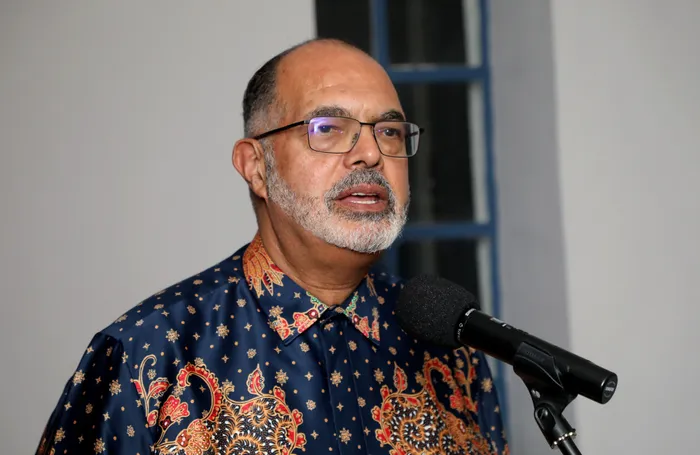
SARS Commissioner Edward Kieswetter
Image: Timothy Bernard
South African Revenue Service (SARS) Commissioner Edward Kieswetter was honoured this week with the Government Technology Leader Award at the GovTech 2025 Conference, held in Durban.
The accolade was presented during the Digital Public Service Awards, hosted by the State Information Technology Agency (SITA).
Kieswetter has been at the forefront of efforts to modernise one of South Africa’s most critical institutions.
When Edward Kieswetter became SARS Commissioner in 2019, he inherited an institution weakened by state capture and low morale. He responded with a sweeping digital overhaul, anchored in AI, machine learning, and a data-first strategy.
During COVID-19, SARS rolled out more than 30 digital services, including automated registrations, AI-driven banking verification, online appointments, and remote case management. By migrating from outdated systems to HTML5 and integrating third-party data, SARS transformed tax filing into a largely automated process.
By 2024, SARS will be processing nearly 150 million data records annually, using AI to pre-populate returns, detect non-compliance, and combat fraud. These efforts helped recover or prevent over R101 billion in impermissible refunds in a single year.
Kieswetter called data “the new gold,” positioning SARS as a digitally modern, proactive revenue service where tax “just happens” for millions of South Africans.
Under his leadership, SARS has moved from outdated, manual systems to more data-driven, AI-enhanced, and digitally enabled processes.
His push has included attracting top talent in IT, data science, audit and risk, and legal expertise to rebuild the agency after years of institutional decline.
The Digital Public Service Awards are South Africa’s premier recognition platform for excellence in digital transformation across government.
This year, more than 150 nominations across eight categories were received. Kieswetter’s win highlights SARS’s strides in innovation, automation, and service excellence, positioning the agency as a continental benchmark for technology-driven governance.
The award recognises SARS’s adoption of self-learning computer systems, artificial intelligence, and interconnected platforms, as well as its expanded use of data analytics to improve compliance and enforcement.
The transformation at SARS is about more than efficiency. For citizens and businesses, it means faster, more transparent tax services and reduced friction in compliance. For the government, it strengthens revenue collection capacity, a cornerstone of national stability and growth.
Technology-driven improvements also build public trust in the institution by reducing errors, minimising manual interventions, and making processes clearer. However, they also raise the stakes: SARS must invest heavily in cybersecurity, inclusivity, and ongoing innovation to meet rising expectations.
